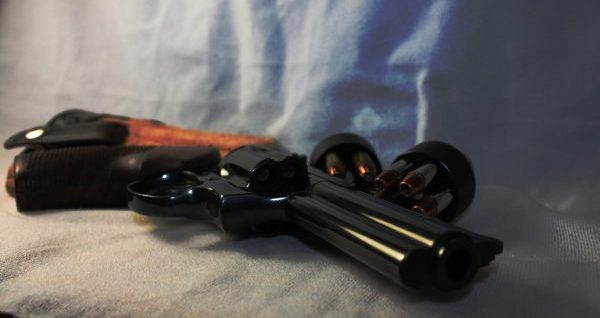
In King County, Washington – the Evergreen State’s dominant “blue” county where politics habitually falls off the left edge – law enforcement has come up with an interesting approach to fighting gun-related crime: Bust the bad guys and leave the good guys alone.
It’s called Operation Quiet Nights, and last week it produced 26 arrests for gun-related crimes, including felony warrants, according to Seattle Weekly. Seven of those suspects are juveniles and because of that, the newspaper said five under the age of 18 were already released.
There is one caveat to this effort, described to Liberty Park Press by Sheriff John Urquhart in a telephone conversation. Gun owners should take better care to lock up their guns, because many of the guns showing up in these crimes have been stolen in residential burglaries.
That comes from a guy who, despite being surrounded by legions of liberal politicians, has steadfastly refused to engage in gun politics. The closest he would come happened earlier this week when he told reporters, “If you’re a homeowner and have a gun, good for you, but for God’s sake keep it locked up. None of these shooters are walking into Wade’s gun shop and buying a gun. They are buying them on the street and these guns are all stolen. And they are stolen from houses where people do not lock up their guns. And people are dying because of that.
“We do not have a law in Washington to punish people who do not lock up their guns. Maybe we should.”
That said, Urquhart insisted via telephone that he would never travel to the state capitol to encourage such a law. After all, how would that be enforced? As anti-gun Seattle Mayor Ed Murray knows from experience, proposing laws that might include warrantless searches of gun owners’ homes doesn’t pass the smell test with civil rights attorneys.
Law enforcement officials in south King County launched a cooperative effort earlier this year to bag the bad guys, including the illegally-armed juveniles who create much of the problem. According to a KING news report, 88 percent of suspects in shootings currently under investigation are “known gang members.”
What Urquhart said, and what he didn’t say, leads to one inescapable conclusion that the gun prohibition lobby in Washington and across the country simply cannot grasp. Stolen firearms enter a black market where there are no background checks, no waiting periods and laws prohibiting unlicensed concealed carry do not apply.
Whether guns are stolen in residential burglaries, or crash-and-grab gun shop thefts, or thefts from rail cars in Chicago or even from the cars of law enforcement officers – the gun used to kill Kate Steinle on that San Francisco pier two years ago was stolen from a federal law enforcement officer’s vehicle – they are not subject to myriad gun laws that seem to only impair the rights of law-abiding citizens.
Washington State voters passed Initiative 594 three years ago, requiring background checks on all firearms transfers with very few exceptions. It’s nothing more than a back door registration scheme designed to track the movement of a firearm and who has it. It is inconvenient and expensive to honest citizens, and there may be considerable non-compliance. There is no indication it has prevented a single crime.
But criminals don’t obey that law, or abide by the state’s concealed carry statute. Juveniles cannot legally carry a sidearm concealed, especially to intimidate, rob or shoot someone.
Washington does not have a so-called “safe storage” requirement. Gun owners are expected to police themselves on this by storing their firearms safely.
Urquhart acknowledged that there are laws against burglary and car prowling, and that thieves shouldn’t steal. But they are, after all, thieves.
There is no sales tax on a gun safe in Washington. That was done to encourage people to buy them. Whether it is a lock box for a handgun, or a full-size safe that holds rifles and shotguns, they can be a good investment that prevents an outlaw from having a gun, the sheriff observed.